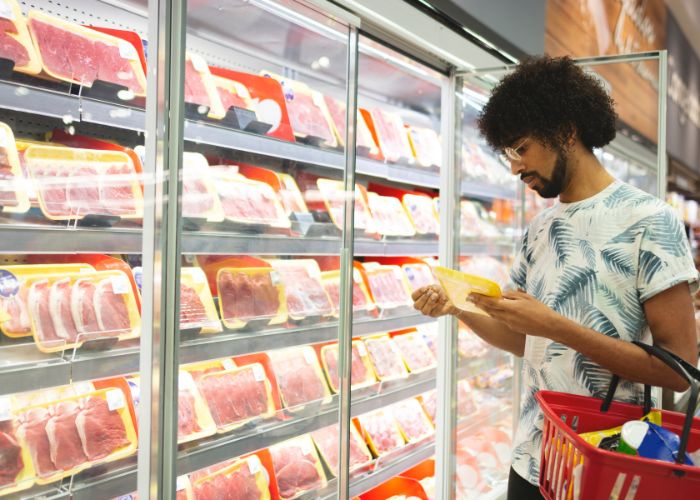Prices in Spain rose again in February, especially food prices. The year-on-year rate of change in the CPI rose slightly to 6%, the Spanish National Institute of Statistics (INE) reported on Tuesday. At the same time, core inflation hit a new high, rising by a tenth of a percentage point to 7.6%. Moreover, the food sector has been the most affected, there CPI reached a new record of 16.6% despite the VAT cut.
The INE revised down its preliminary estimate from the end of February by a tenth of a percentage point. Still, both the overall CPI and the core CPI – which excludes energy and unprocessed food due to their high volatility – rose by a tenth of a percentage point year-on-year from January’s data. Core inflation rose from 7.5% in January to 7.6% in February, the highest figure since December 1986. This index has now risen for four months and remains 1.6 points above the overall rate.
The general CPI registered a similar year-on-year increase. Prices were 6% higher in February than a year earlier. The year-on-year rate was a tenth of a percentage point higher than January’s 5.9%. This is the second consecutive month in which prices rose. However, it is 4.8% below the 10.8% ceiling reached in July. On a monthly basis, things are even more serious.
In February alone, prices rose 0.9%. That is the highest monthly increase since June and the largest increase for a month of February since 1980. The INE attributes the price rise to higher prices for electricity, package holidays and food.
The price of electricity rose 12.6% in the past month alone, but is 33% cheaper than last year. Fuel prices are somewhat more stable. In February, diesel prices fell 4.5% and petrol prices were barely 0.4% higher than in January. And, over the past year, diesel prices rose 2.7%, while petrol prices fell 3%.
Record food prices despite VAT cut
Inflation increases pressure on the shopping basket. Food prices rose by 16.6% over the past year. This is the highest annualised rate in the entire historical series, since January 1994. It is more than 1% higher than January’s 15.4%. In February alone, food prices rose 2% month-on-month despite the reduced VAT on basic commodities. The price hike mainly affected the price of fresh and frozen vegetables, which rose 11.2% last month. According to Spain’s Economy Ministry, the price of fresh produce rose due to a temporary reduction in supply because of bad weather in Spain and other EU countries.
Sugar sharply more expensive
Compared to February 2022 prices, the biggest year-on-year increase is for sugar. That has become 52.6% more expensive in the past 12 months. Butter, sauces and condiments, olive oil and whole milk also became significantly more expensive, with increases of more than 30%. Prices of eggs, fresh vegetables, cereals, dairy products and potatoes rose 28% to 21.2%. However, fresh fish just got cheaper last month, along with yoghurt and mutton, while poultry meat prices remained stable. They are exceptions.
Spanish consumer organisation OCU wants the VAT reduction to be extended to meat and fish, as they are the main sources of protein. It also calls for a concerted effort throughout the food chain to find solutions to reduce prices of basic products. ‘The government’s reduction of some basic foodstuffs has no effect on reducing inflation,’ said Mari Cruz Vicente, secretary of the union CCOO. That calls for ‘more effective’ measures for companies’ margins, which the union leader said are ‘far above wage increases’.
France as an example
The ‘purple’ wing of the Spanish government has been calling in recent weeks for the introduction of a shopping basket of limited prices to mitigate the effects of inflation, an option the Socialists reject. Last week, First Vice President Nadia Calviño invited supermarkets to opt for this kind of initiative, following the example of those implemented in France.
Also read: Why are French supermarkets able to reduce prices when Spanish supermarkets cannot?


